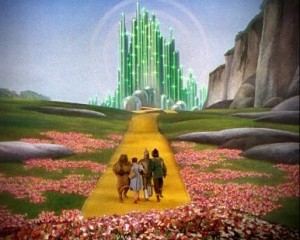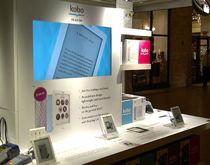 When Amazon launched its Kindle Unlimited $9.99-a-month book subscription program in July, we decided to give it a whirl. For three months (the required minimum sign-up), most of our e-books were sold exclusively on KU. Results? An uptick in profits, but not enough to re-up for. As of this weekend, Boom-Books can be purchased on Smashwords, iTunes, ARe/OmniLit, and Kindle Limited, as well as the nonexclusive $8.99-a-month book subscription service Scribd, with Kobo, Nook, and others soon to follow.
When Amazon launched its Kindle Unlimited $9.99-a-month book subscription program in July, we decided to give it a whirl. For three months (the required minimum sign-up), most of our e-books were sold exclusively on KU. Results? An uptick in profits, but not enough to re-up for. As of this weekend, Boom-Books can be purchased on Smashwords, iTunes, ARe/OmniLit, and Kindle Limited, as well as the nonexclusive $8.99-a-month book subscription service Scribd, with Kobo, Nook, and others soon to follow.
Several factors besides money influenced the move. First: the ethical dilemma. More than one author has admitted: I hate Amazon, but I use it. So does economist Paul Krugman in today’s New York Times. Krugman, though, doesn’t just hate Amazon. He fears it, and believes it should be reined in: “Amazon.com, the giant online retailer, has too much power, and it uses that power in ways that hurt America.”
 Second: the practical dilemma. Amazon already has taken a controlling position in the book industry (as Krugman notes). The question is less Will the company achieve a monopoly? than What can be done about it? and, of course, How much does it matter? We already know that
Second: the practical dilemma. Amazon already has taken a controlling position in the book industry (as Krugman notes). The question is less Will the company achieve a monopoly? than What can be done about it? and, of course, How much does it matter? We already know that
- the tech revolution has whacked publishing like a tsunami;
- the medium is shaping the message, in too many ways to list here;
- as Peter Brantley pointed out years ago, the nature of 21st-century publishing is being determined by tech people, not book people.
If Amazon were reined in, would that bring back a Golden Age when a book is published for its content and prose quality rather than the author’s celebrity, and readers get suggestions from well-read bookstore clerks instead of from algorithms? Unlikely. What it probably would bring is the fast rise of Apple, Google, or some other online rival.
 That said, we would rather continue publishing as an ant in an arena of clashing titans than in an empty street loomed over by a single Godzilla.
That said, we would rather continue publishing as an ant in an arena of clashing titans than in an empty street loomed over by a single Godzilla.
One Amazon innovation we find particularly disturbing is the honey pot. Perhaps inevitably, electronic publishing has shifted the definition of terms like royalty and even book sales from literal to metaphoric. Amazon exploits this shift by paying its exclusive authors not a fixed percentage of their books’ earnings, but a share in a pool of money established by Amazon. If you as an author enroll a book you’ve written in Kindle Unlimited or KDP Select (Amazon Prime), you get a payment whenever a subscriber borrows your book (KDPS) or reads past the first 10% (KU). Those exchanges between producer and consumer are not, strictly speaking, book sales. Your customers only “own” your book for as long as they stay in the program, i.e., continue to pay Amazon’s monthly subscription fee.
Meanwhile, Amazon’s payments to you come from a discretionary fund which is not related to your book’s earnings. So far, the amount has been carefully kept above $1.50 per “borrow.” You might call these payments earnings, or bonuses, or (if you’re a cynic) bribes. Bottom line: Amazon has been investing $2-3 million a month to induce authors and small publishers to supply its subscribers with books. Most of the big publishers refuse to participate, so Amazon has to stock the pond somehow.
 But what will happen once it’s full? The lure can be snatched away at any moment. Given that Amazon’s enormous revenues so far haven’t made it profitable, the company may well follow the same strategy as it did with audiobooks: once enough books are in the pipeline, change the payment structure. Amazon started by acquiring the entire vertical chain of audiobook creation and distribution, including buying Audible from Apple. Then its ACX production arm declared: From now on, instead of a 50-50 split, we’re taking 60% and giving you 40%. ACX users fiercely protested. Amazon predictably ignored them.
But what will happen once it’s full? The lure can be snatched away at any moment. Given that Amazon’s enormous revenues so far haven’t made it profitable, the company may well follow the same strategy as it did with audiobooks: once enough books are in the pipeline, change the payment structure. Amazon started by acquiring the entire vertical chain of audiobook creation and distribution, including buying Audible from Apple. Then its ACX production arm declared: From now on, instead of a 50-50 split, we’re taking 60% and giving you 40%. ACX users fiercely protested. Amazon predictably ignored them.
Serendipitously, as this blog “goes to press,” today’s Digital Book World has published Kobo President Michael Tamblyn’s “32 Notes on Amazon-Hachette-IndyAuthors,” a series of Tweets warning of exactly the scenario we’ve just described. As we noted here last November, Kobo has acted on its convictions: in partnership with the American Booksellers Association (ABA) and others, the IndieBound program lets readers buy e-books from Kobo online through their favorite independent bookstore, with a share of the proceeds going to the store. Next time you’re thinking of buying an e-book, check it out!
a series of Tweets warning of exactly the scenario we’ve just described. As we noted here last November, Kobo has acted on its convictions: in partnership with the American Booksellers Association (ABA) and others, the IndieBound program lets readers buy e-books from Kobo online through their favorite independent bookstore, with a share of the proceeds going to the store. Next time you’re thinking of buying an e-book, check it out!

One thought on “Good-By Kindle Unlimited, Welcome Back iTunes, Smashwords, et al.”
Comments are closed.